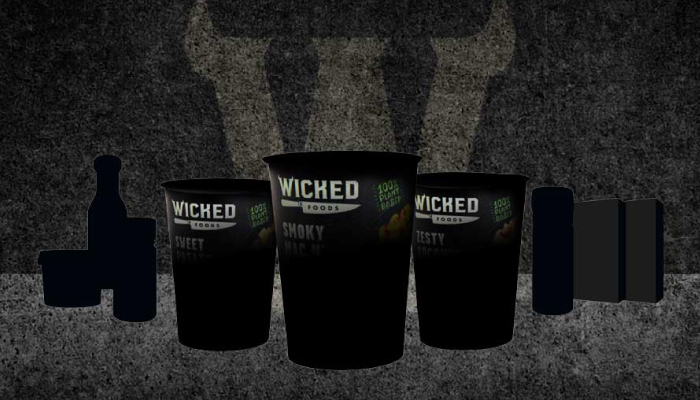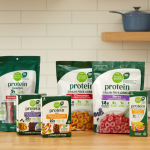Wicked Foods Heads to the US with Speranza at the Helm

Wicked Foods is hopping across the pond, and it’s picked up some talent along the way. The plant-based food brand, currently sold in United Kingdom Tesco stores under the brand Wicked Kitchen, will also add Unovis operating partner and former 301 Inc business development principal Pete Speranza as CEO.
Launched in 2018, Wicked Foods was co-founded by chefs (and siblings) Chad and Derek Sarno along with Unovis partner and chief investment officer Chris Kerr. The brothers have a long history in product development — both are co-founders of plant-based seafood company Good Catch and worked for Whole Foods Market, in product development roles. Derek Sarno also is currently Tesco’s director of plant based innovation.
Backed by Kerr’s New Crop Capital fund and originally formed as a mushroom-focused startup called Wicked Meaty, the company broadened its business plan when Tesco approached Derek Sarno to develop a plant-based line for its stores. The core thesis of the product line, Kerr said, is what Unovis calls “The Food PACT: price, awareness, convenience and taste.” That is, creating easily accessible plant-based products that “meet consumers where they are and bring a curated culinary experience.”
Though there is plenty of competition on store shelves among plant-based offerings, the team still feels there’s an unmet need.
“Knowing what the real barriers are and learning what customers’ true needs and wants are, compared to what they’ll actually buy, is where we identified the gap,” Derek Sarno said. “True innovation is born from disrupting habitual patterns and seeing the opportunity in frustration points.”
Since its launch, the company has grown to sell over 100 SKUs, exclusively in Tesco, including spice blends, branded produce, plant-based meat alternatives and packaged prepared foods. Sarno said the company chose to go broad because it seeks to “make the biggest impact possible.”
The U.S. launch will start with the company focused on meal solutions, Sarno added. Made by a co-packer, the products will launch over the next six to 12 months in a select “target” group of retailers. Though Wicked Foods has not yet disclosed the first offering, teaser images released by the company appear to show what looks like instant noodle or meal cups labeled “smoky mac n’…”

Kerr said that while the company will likely launch with shelf stable items, grab and go fresh items, like the ones sold in Tesco, are also part of the plan. They require localized production and supply chain — which the company is still establishing. He added Wicked Foods has yet to determine if it will enter the “competitive” plant-based meat category in the U.S., waiting to see if the brand “has strong enough distinction to go into meats to the degree the U.K. has.”
The company’s current Tesco offerings are also decidedly British at times, with a bent towards the Indian dishes more commonly popular overseas, but the company plans to adapt those to suit a U.S. audience.
“[A] key thesis we push at Unovis [is] global adoption comes from local acceptance, and local acceptance requires local flavors, form and function – and sometimes tradition,” Kerr said. “Wicked is designed to localize offerings based on region – and do so globally.”
Meanwhile, Speranza has also joined the team to head up the company, which previously lacked a formal CEO role, bringing an understanding of “global supply chain and production, international partnerships and mass-market consumer brands,” Kerr said.
Wicked Foods’ US office will now be located in Minneapolis, where Speranza resides; he will maintain his role as an operating partner at Unovis, but the bulk of his attention will be devoted to Wicked Foods. As to why he decided to leave the world of investing to work on the brand side, Speranza explained the move had more to do with the mission of the company than the role.
“I’ve seen the impact of culinary innovation and education on the food system,” Speranza said. “Plant-based isn’t just a trend but a way of life.”














![[Updated] Oats Overnights Secures $45M Investment From Astō](https://d2azl42aua8mom.cloudfront.net/wp-content/uploads/2026/01/29172259/2026-01-29-oats-overnights-secures-45m-in-growth-equity-from-square-150x150.jpg)

